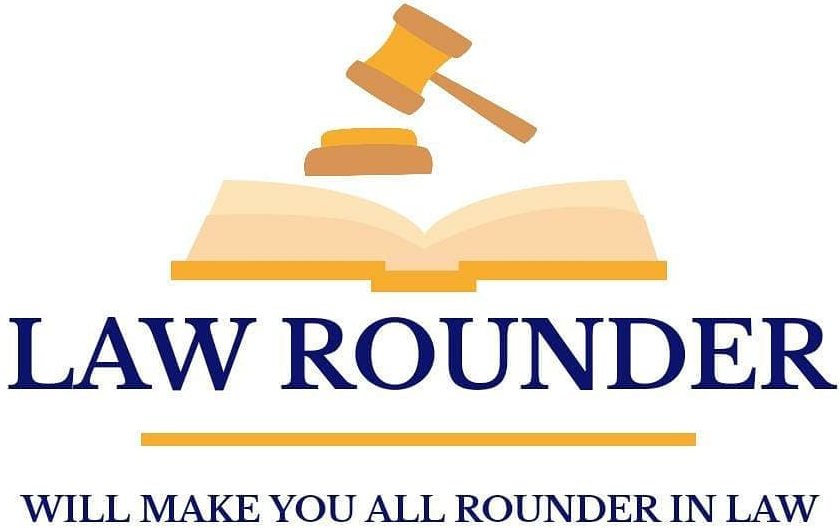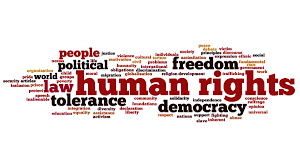
White Collar Crimes and procedure under different laws
I Introduction:
As the concept of white-collar criminality has become a global perspective with the advancement of technology and commerce. Like other developing countries India is also ahead with the increasing rate of white-collar criminality the increase of white-collar criminality is due to the increase of commercial activities and industrial growth around the country. As before getting into deep regarding the legality of white-collar crimes we need to know that what are white-collar crimes? So, white-collar crimes that are related to financial matters non-violent crimes committed by businessmen and government professionals. As the concept of white-collar crimes as defined by the sociologist named Edwin Sutherland in 1939 “a crime committed by a person of respectability and high social status in the course of their occupation”. As white-collar crimes are pervasive and widely spread in different professions in our society whether health care, legal or commerce sector, usually the crimes in India are dealt with the Indian Penal Code, 1860 but with the change in a tie, there was need of the society that different laws and agencies would require to deal with crimes like corruption, bribery, black marketing, theft, misappropriation, Blackmail, cellular phone fraud, embezzlement, tax evasion, etc., as these are certain criminal activities that give a view what are white-collar crimes. As the paper would discuss the concept of white-collar crimes and its procedures under the following laws:
l Indian Penal Code, 1860
l Prevention of Corruption Act, 1988
l Prevention of Money Laundering Act, 2002
l Companies Act, 2013
As there are further acts which deal with the white-collar crimes like Narcotics drugs and psychotropic substance (NDPS Act), Income-tax Act. These acts help in dealing with white-collar crimes in India. These crimes are serious crimes than traditional crimes because financial help would be considered important before committing any of the crimes. These crimes are governed through Indian Penal Code,1860 but now different laws and authorities were governing like SEBI, central Vigilance committee (CVC), revenue department, Financial Intelligence Unit (FIU) as these agencies would take care that where when and how the money would be transacted in different accounts whether international or domestic. Usually, white-collar crimes are committed by educated people as these crimes are socio-economic crimes which create more problem because these people have more connection which creates a problem to catch them because right from bottom to top they are well connected and it is not easy to catch every person through provisions like IPC as for that provisions like prevention of corruption act or money laundering act is required as they are governed by different agencies and proper investigation procedure has been followed. As white-collar crimes are classified into four categories:
l Professional crimes
l Medical crimes
l Legal crimes
l Socio-economic crimes
Corruption would be regarded as the biggest problem in our country cases like 2G spectrum or commonwealth case are considered to be the most prominent case for corruption most of the times public officer are involved in these crimes. Basically, looking into these crimes there were different project report on white-collar crimes as the first report was on prevention of corruption,1964 (by Shri K. Santhanam) another was regarding admin of Dalmia Jain companies and several other committees were formed to get the report of the white-collar crimes in India. As the paper will discuss certain procedures related to white-collar crimes in different laws as discussed above. So, the following things will be discussed: Agencies under these laws, Ingredients that led to the white-collar crimes, Courts, and jurisdictions under different laws, Protections under different laws to the accused, Trial procedures.
II Overview of courts and jurisdiction:
As the main concept that arises is basically what will be the courts that have been designated under the following acts of IPC, Prevention of corruption act, prevention of money laundering act and companies act and what will be the jurisdiction of these courts under these respective acts
- Indian Penal Code,1860
As if a matter of corruption or bribery by a person has been recorded under the Indian penal code the procedure will be followed from the criminal procedure code. As depending upon the matter, it will be constituted under respective court and jurisdiction as per defined the criminal procedure code 1973. As if the crime has been registered under the metropolitan area, in that case, Metropolitan magistrate will try the matter under his jurisdiction as described under (section16) of Croc as depending upon the area respective court will be there as per the procedure As under Crpc respective courts have been described whether session judge, Metropolitan Magistrate, judicial magistrate first class or second class (section11) of the code. So, under if a matter is recorded under the Indian penal code in that case proper procedure will be followed as described under code as the jurisdiction of the matter will describe where the particular offense has been recorded at a particular place.
- Prevention of Corruption Act,1988
As the main motive behind the making of this act is speeding up trials through PCA basically if we look at the procedure of trials, they generally took time if an offense has been recorded under IPC it usually takes time in delivering the judgment regarding that offense. As there is also a tendency that on the part of the accused to challenge almost every interim order passed on the miscellaneous application by the trial court, high court, and later in the Supreme court and obtaining the stay at the trial. So, this generally creates an opportunity for the accused to get released and till the time the order passed it is of no use. But still, it is important to examine every fact regarding that offense. As under the prevention of corruption act, all cases are tried by the special judges and the proceedings of the court will hold on a day-to-day basis as this will reduces the pendency of cases. As special judges are a creature of criminal Amendment Act 1952 as he enjoys a special status under the act and is given certain powers under the provision of the act. As it can be either a Session judge, Additional Session Judge, or an Assistant Session judge. The procedure will be followed by Crpc for the trial warrant cases by the magistrate. The provision of Section 326 and 475 of Crpc shall apply to the proceedings before a special judge and for the said provision special judge deemed to be a magistrate. Section 7 of the Criminal Law amendment act states that every offense shall be tried by the special judge for the area within which it was committed. Besides, the person conducting a prosecution before a Special Judge shall be deemed to be a public prosecutor. Thus, a Special Judge is equipped with all the general powers of a Sessions Judge to conduct proceedings of the offenses committed under the Act. It is also one of the important provisions provided under the Act furthering the cause of justice. A Special Judge appointed under the Act shall be having the power to conduct a summary trial of the cases under specific circumstances. Where a special Judge tries any offense specified in sub-section (1) of section 3, alleged to have been committed by a public servant concerning the contravention of any special order referred to in sub-section (1) of section 12 A of the Essential Commodities Act, 1955 or of an order referred to in clause (a) of sub-section (2) of that section, then, notwithstanding anything contained in sub-section (1) of section 5 of this Act or section 260 of the Code of Criminal Procedure, 1973, the special Judge shall try the offense in a summary way, and the provisions of sections 262 to 265 (both inclusive) of the said Code shall, as far as may be, apply to such trial.
So, these are overviews of courts under the prevention of corruption act 1988 as the power of special judges and how they deemed to be either session judge or magistrate under the respective section of the code. But the jurisdictional matter under the prevention of corruption act is same as of Indian penal Code as both are governed by the criminal procedure code 1973 so it depends on where the offense has been committed or has taken place according to that special court will be there the only difference under this act is that there will be day-to-day proceedings.
- Prevention of Money Laundering Act, 2002
For the trial of an offense punishable under section 4 of PMLA, 2002, the Central Government, in consultation with the Chief Justice of the respective High Courts, by notification, has designated one or more Courts of Session as Special Court or Special Courts for such area or areas or for such case or class or group of cases as specified in the notifications. While trying an offense of money laundering under PMLA,2002, a Special Court has also to try the offenses, with which the accused may, under the Code of Criminal Procedure, 1973 (2 of 1974), be charged at the same trial (Section 43). The High Court may exercise, so far as may be applicable, all the powers conferred by Chapter XXIX or Chapter XXX of the Code of Criminal Procedure, 1973 (2 of 1974), on a High Court, as if a Special Court within the local limits of the jurisdiction of the High Court were a Court of Session trying cases within the local limits of the jurisdiction of the High Court. In case the court which has taken the cognizance of the scheduled offense is other than the special court under PMLA as in these cases the authority authorized to file a complaint under PMLA the trial court( which has taken the respective cognizance of the offense) shall commit the case relating to the scheduled offense to the special courts under PMLA. The PMLA on receipt of such a case committed to it shall proceed to deal with it from the stage at which it was committed. [Section 44(1)(c)]
III Procedural Protection Available to Accused in different laws:
The nature of the criminal defenses which can be raised in cases of a white-collar crime depends on the nature of the statute under which the charges are levied. As such, it is unlikely that a common defense could be raised across the range of white-collar crimes. In the case of an offense involving bribery, lack of proof of the demand and payment of the bribe may be raised as a defense. For example, defenses to allegations raised under the PCA are likely to be legally different from defenses to allegations raised under the PMLA, even though the offense originates from the same series of transactions.
However, in cases where individuals are made criminally liable for the acts of companies through vicarious liability provisions in statutes, the common defense that can be taken is that the offense took place without his or her knowledge, involvement or negligence.
Companies and their officials accused of paying bribes under the PCA can raise the defense that the company had adequate bribery prevention policies and compliance programs in place. However, the government has yet to notify the relevant rules and standards set out the scope and contents of such an effective compliance program.
Exceptions:
There are no exceptions for white-collar offenses and all corporations and individuals accused of commission of white-collar crime are investigated as per the procedure prescribed in law. No industries and/or sectors are exempt.
As there is certain protection given under the following laws i.e. companies act and prevention of money laundering act:
- Companies Act, 2013
Under the Companies Act, 2013, every listed company is required to establish a vigil mechanism for its directors and employees to report genuine concerns and penalties are imposed on companies that fail to comply with this requirement. The existence of such a mechanism is also required to be disclosed in the report of the Board of Directors. Thus, it is apparent that there is an attempt to encourage employees to safely red-flag serious issues. Additionally, the Companies Act, 2013 requires independent directors to ascertain whether the company has an adequate and functional vigil mechanism as well as ensuring that the interests of persons who use such mechanisms (whistle-blowers) are protected. Also, the SEBI corporate governance rules require companies to establish a functional whistle-blowing mechanism and ensure adequate protection to whistle-blowers.
The Companies Act, 2013 and its allied rules, without being specific as to the nature and extent of the safeguards required, mandates that the vigil mechanism put in place by the company shall ensure adequate safeguards against victimization of the whistle-blower
- Prevention of money laundering Act, 2002
Basically, under PMLA the property of the accused is attached from the beginning of the investigation so the question arises that What is the remedy available to an aggrieved person, where the property is provisionally attached? It has been provided in the Act that before recording the finding that all or any of the properties are involved in money laundering, the Adjudicating Authority has to issue a show-cause notice of not less than thirty days to the aggrieved person. The aggrieved person at this stage can submit his reply and attend the hearing before the Adjudicating Authority to present his defense [Section 8(1)]. A person called upon to make a statement before the authorities under PMLA during an investigation cannot be said to be accused of an offense. The investigation is only to collect evidence concerning proceeds of crime in the hands of the persons suspected and their involvement in the offense of money laundering. It is only at the stage of filing of the complaint about prosecution under PMLA envisaged under Section 44(1)(b) of PMLA can such persons or suspects be termed as accused. . As there are following rights of the person during an investigation which need to be followed by the investigation officer as these rights can be termed as protection for the person being searched:
Where an authority is about to search any person, he shall, if such person so requires, take such person within twenty-four hours to the
nearest Gazette Officer, superior in rank to him, or a Magistrate.
(ii) If the requisition is made, the authority shall not detain the person for more than twenty-four hours before taking him before the Gazette Officer, superior in rank to him, or the Magistrate referred to in that sub-section.
(iii) The Gazette Officer or the Magistrate before whom any such person is brought shall if he sees no reasonable ground for search, forthwith discharge such person but otherwise shall direct
that search be made.
(iv) The search shall be made in the presence of two or more persons.
(v) No female shall be searched by anyone except a female [Section 18].
As these are certain procedural protections or defenses for the accused under these laws ass under Indian Penal Code there has been no protection during an investigation as per criminal procedure code 1973 as during investigation certain things need to be followed as per Crpc a proper investigation procedure need to follow I .section 157,158,159 of the code as proper investigation procedure need to be followed
IV Conclusion
So, these are certain procedures in respective acts the paper focuses on procedural aspects of these acts concerning white-collar crimes. This shows how these acts protect and safeguards the rights of the people. But still, there are certain recommendations which show that still there is a need for amendments under this act:
- “A specialized agency should be established to deal with investigation and prosecution of white-collar crimes”
- “A Sentencing Commission should be established in India”
- “Legislative amendments should be made for Enhancing punishments for white-collar crimes”
So, these are certain recommendations under white-collar crimes as these things should be kept in mind under white-collar crimes
BY-DEEPANKAR CHUGH




I was reading the comments, and I have to agree with what Tom said.
I really enjoy the way your page looks. I think it is awesome. If you dont mind me asking, what template is this site? Thank you. http://www.piano.m106.com
This blog has lots of extremely useful stuff on it! Cheers for informing me.
We came across a cool web-site which you could appreciate. Take a search should you want.
Hi there, I found your blog via Google while searching for first aid for a heart attack and your post looks very interesting for me. http://www.piano.m106.com